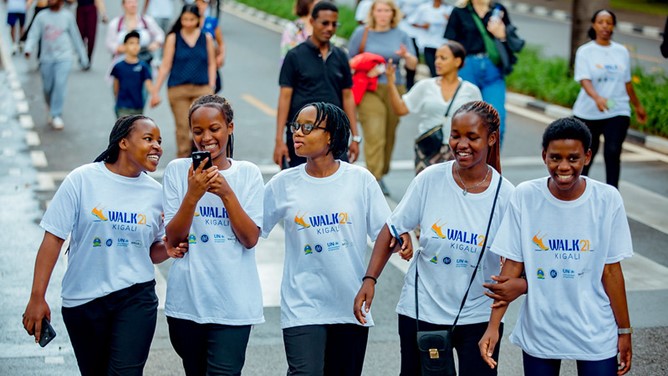Investing in walking and cycling policies in African cities within Least Developed Countries (UNEP)

This project aimed to enhance and strengthen the capacity of three Least Developed Countries (LDCs) in Africa at the local, national and regional levels to better design and implement policies and make investment decisions that prioritize the needs of pedestrians and cyclists, particularly those that are part of vulnerable groups that do not have access to other modes of transportation. The project resulted in enhanced engagement between policymakers and vulnerable groups including children and people with disabilities for jointly developing policies that systematically prioritize Non-Motorized Transport (NMT) investment. This engagement led to the improved capacity of city and national government officials in all three countries to systematically prioritize and allocate resources to NMT infrastructure – through development and amendment of necessary policies integrated with existing city transport plans.
During the project, project partners in Ethiopia, Rwanda and Zambia finalized activities around stakeholder engagement and consultation. Using these findings, they obtained commitments for improved walking and cycling conditions and practices from local government officials and transport focal points. In Ethiopia, World Resources Institute organized a national level steering committee meeting in May 2023 where the new transport and logistics state minister committed to strengthening collaboration among members of the NMT committee and improving the implementation of the national NMT strategy. Additionally, the establishment of the National Road Safety and Insurance Fund Services under the Ministry of Transport and Logistics and World Resources Institute’s continued technical assistance were instrumental in integrating walking and cycling into the broader national road safety efforts. In Rwanda, Global Green Growth Institute collaborated with Don Bosco Primary School in Kigali to organize a workshop aimed at identifying children’s challenges and the interventions required to ensure safe and sustainable mobility in their daily commutes from home to school and vice versa. Approximately 80% of the students engaged in the workshop walked to school every day and they emphasized the need for, among other things, better street lighting, improved road crossings and cycling infrastructure. In Zambia, together with ongoing meetings and technical assistance, a national stakeholder meeting was held in May 2023. The meeting was comprised of technocrats from civil society, academia, and several ministries with the objective of outlining clear responsibilities for walking and cycling investment. It was proposed that authorities establish a dedicated NMT budget line on a national and local level and that stakeholders should work together to ensure resource mobilization.
Following the Africa Regional Forum for Action – Inclusive & Active Mobility in a Changing Climate which took place from 6-9 June 2022, UNEP and the Walk21 Foundation continued engagement with the local authorities in Rwanda. This engagement led to the 23rd annual Walk21 Conference, Action for Walking, being held for the first time on the African continent. Co-hosted by the City of Kigali, the Walk21 Foundation, UNEP and the University of Rwanda, 300 delegates from across Africa (70%) and the world attended the conference, which featured detailed thematic workshops and engagements on the affordable and essential steps to improve walkability. The City of Kigali dedicated 30 staff members to participate in and host several workshops. The conference provided opportunities to network, share global perspectives, create interdisciplinary exchanges and experience the NMT environment in Kigali City. It also provided city authorities with the opportunity to learn from good practices in Kigali and demonstrated the importance of political willingness in improving the walking landscape. The conference increased regional momentum for the NMT agenda and proved to be a pivotal moment for the development of a Pan African Action Plan for Active Mobility.